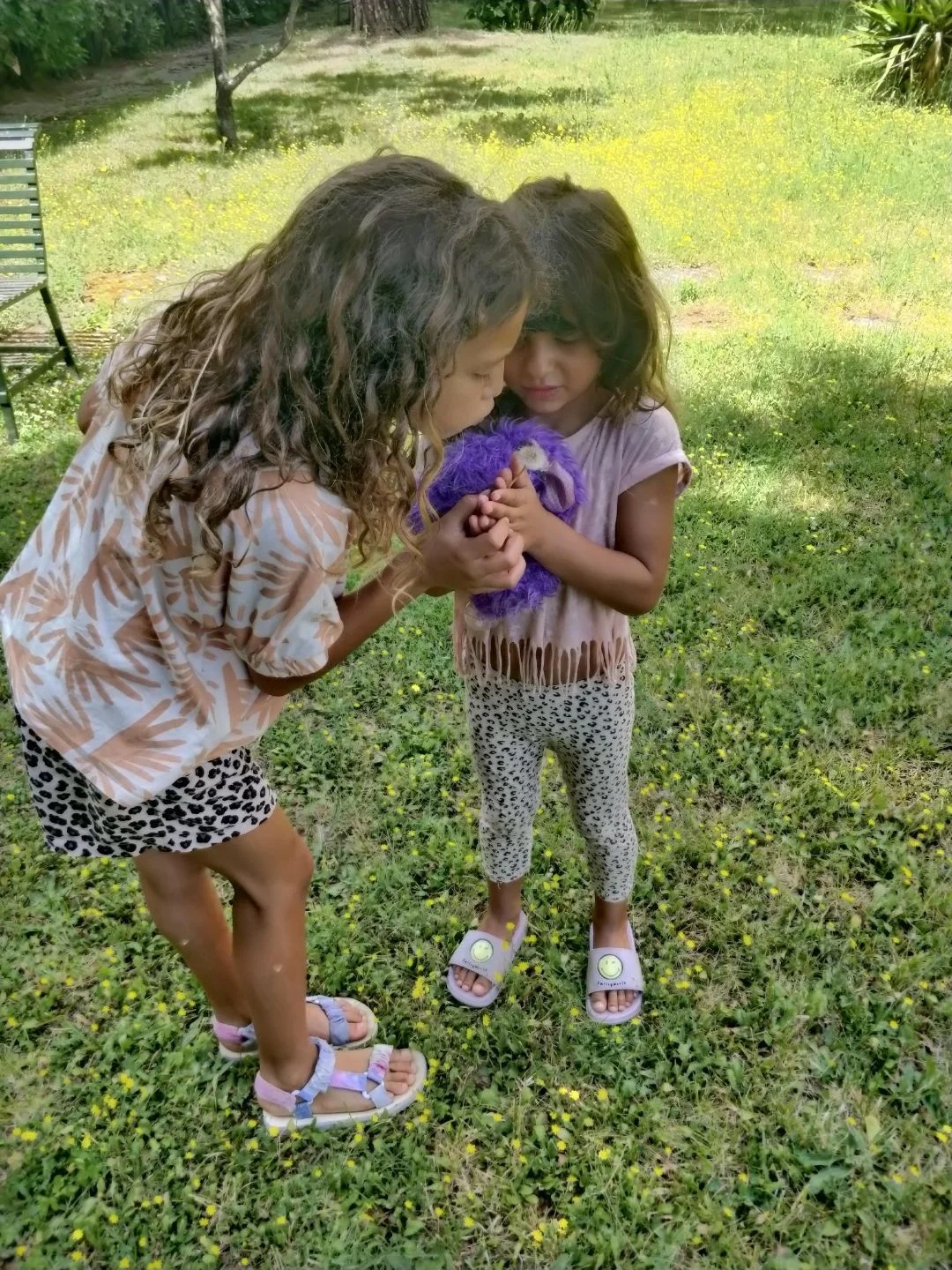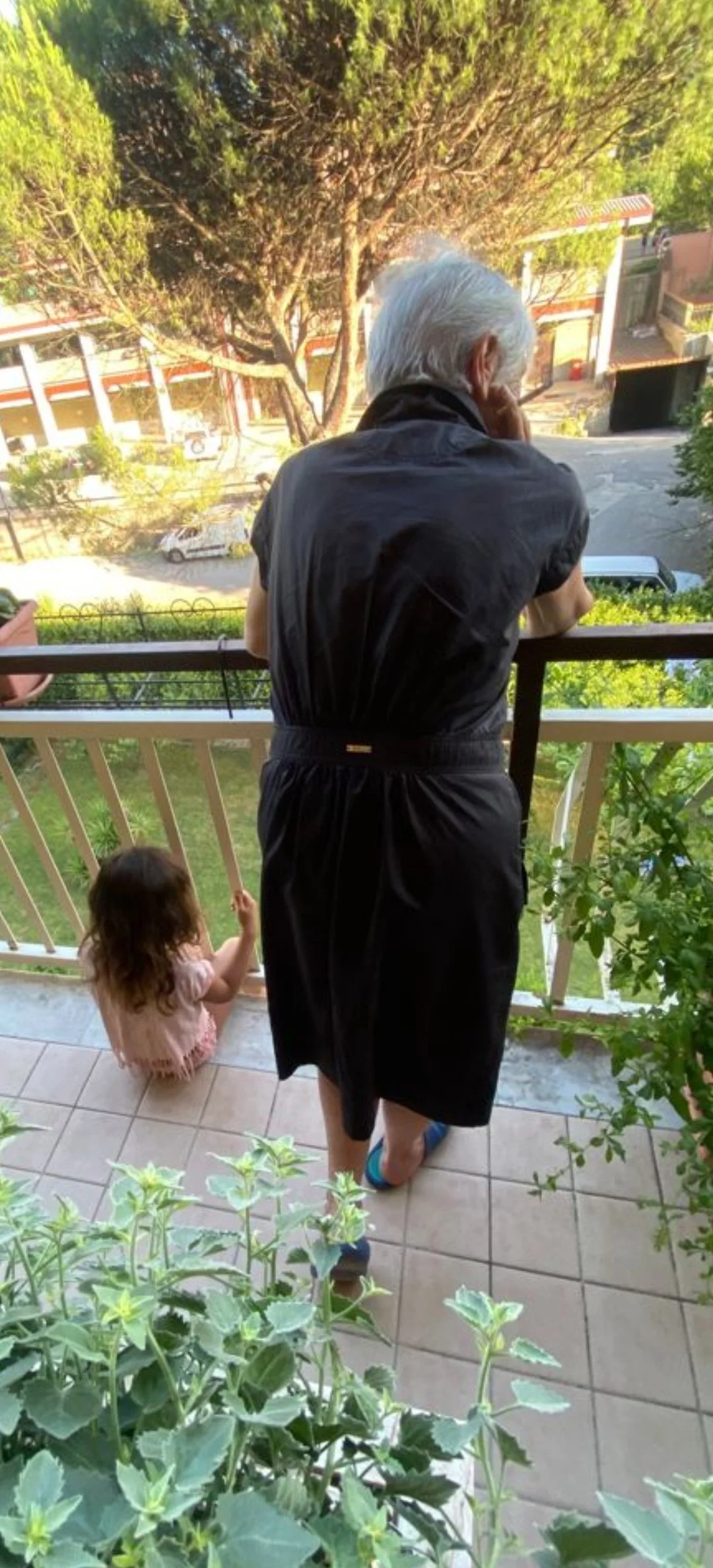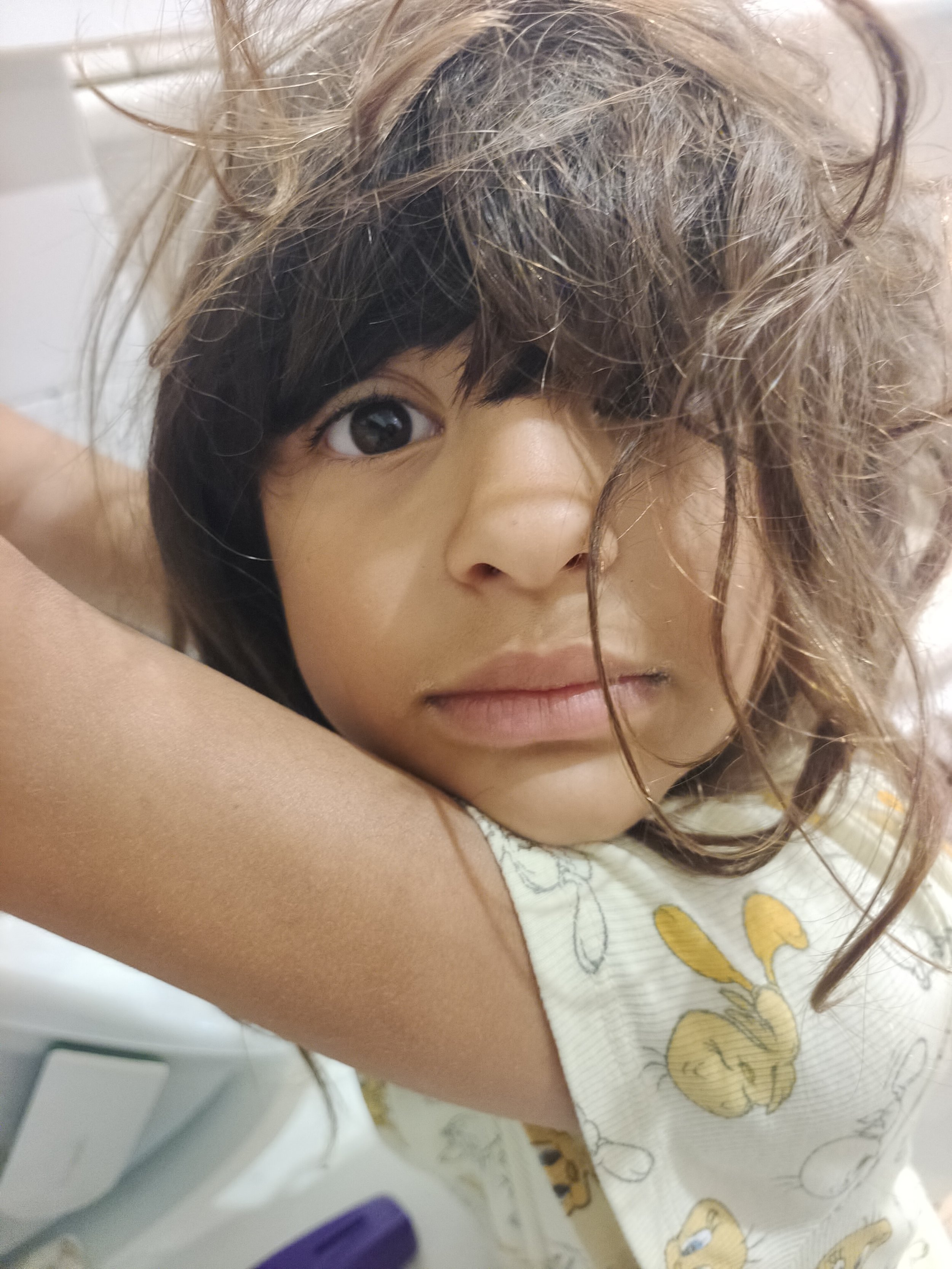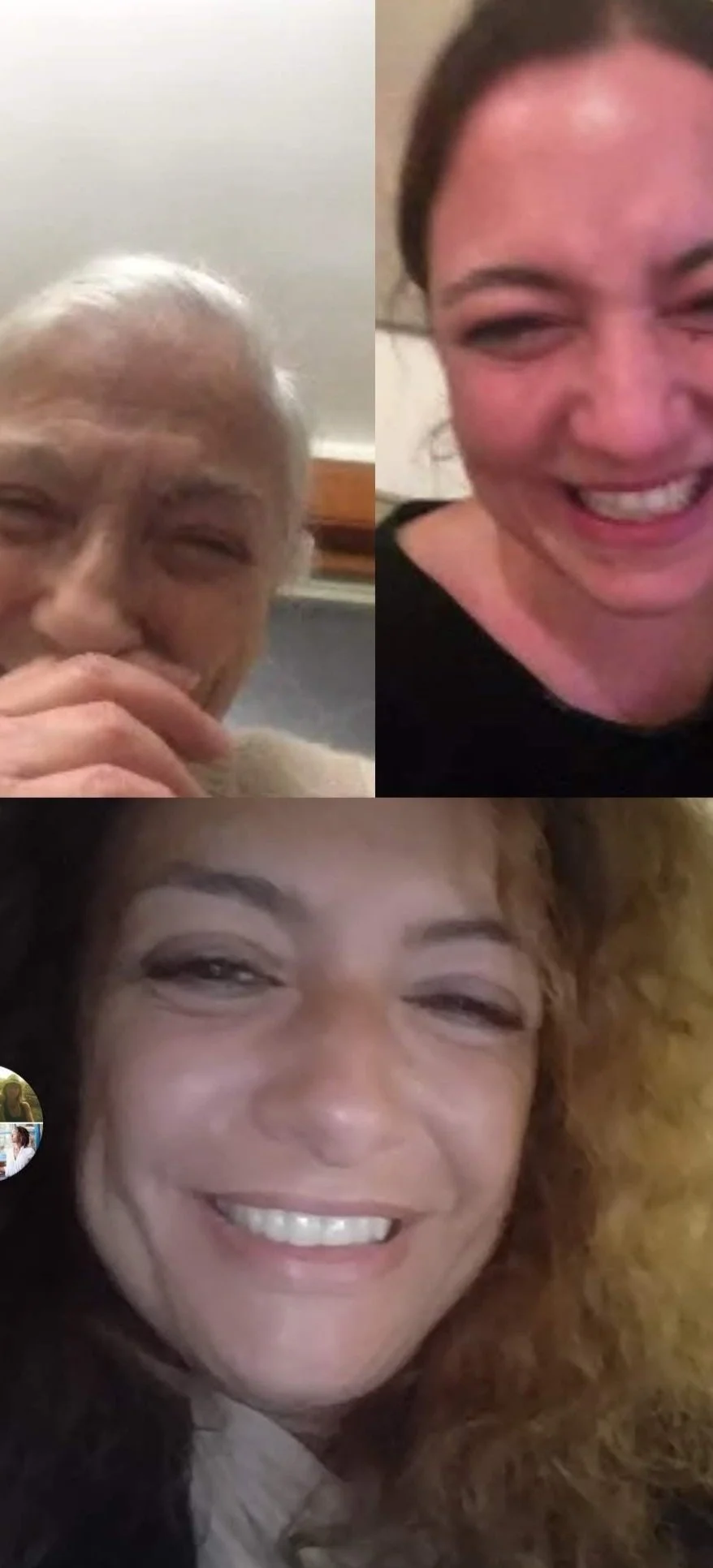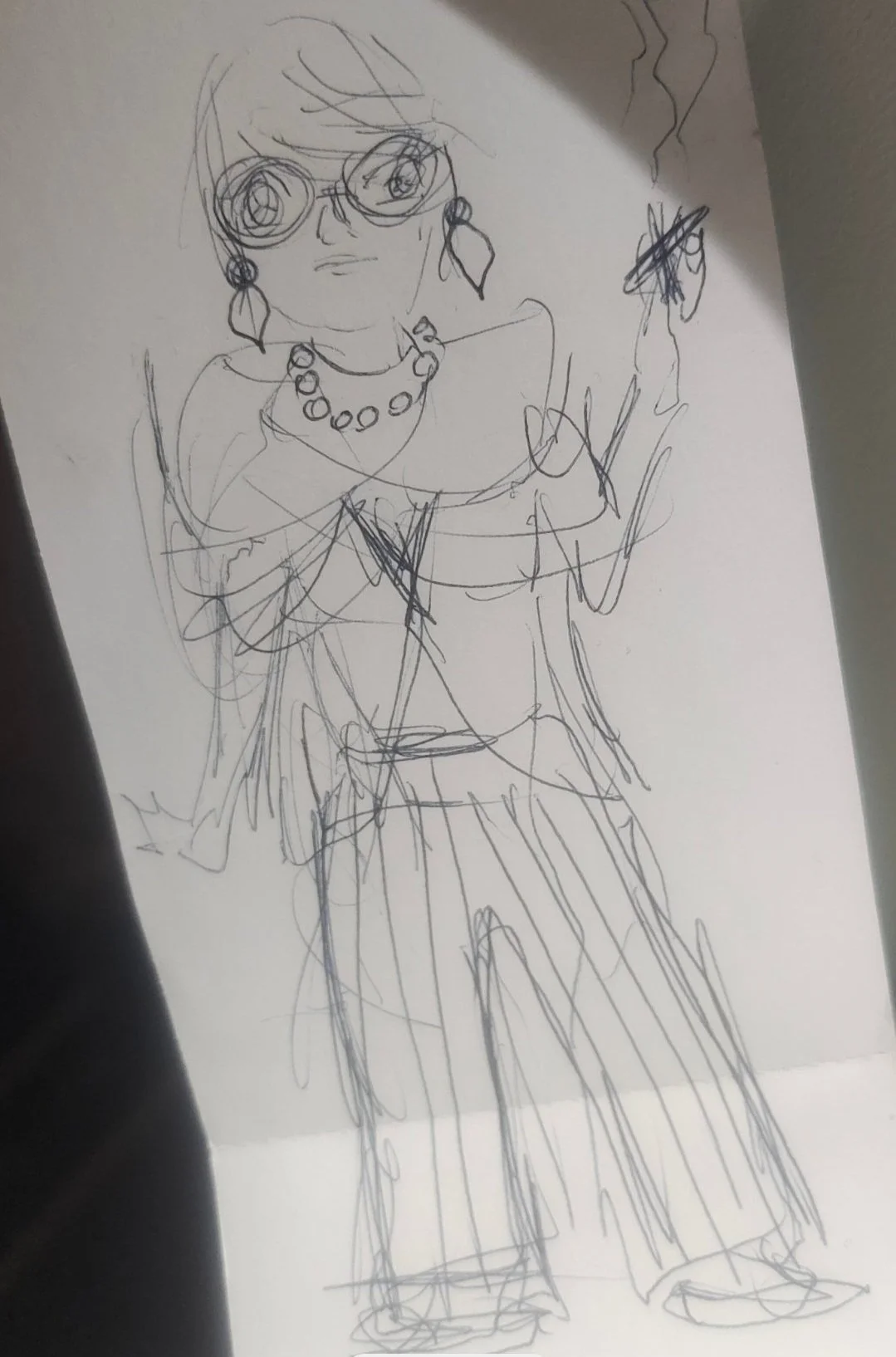Lutto in poche parole (nel vento)
Con mamma ci parlo nella mia testa. Sono parole che non vengono dette e proprio per questo a volte ho paura che si perdano nel vento.
A volte immagino che mi chiami, Dadá, sento la sua voce quando ho bisogno di sentirla. Altre volte ho bisogno di qualcosa di più e mi metto nel letto, mi immagino lei che si siede accanto a me, di lato, coi piedi quadrati per terra a darmi la schiena, senza guardarmi. Quando lo faceva, quando sapeva che ne avevo bisogno, sembrava che stesse prendendo posizione meticolosamente, la solita, come fosse un lavoro preciso da fare in quella posizione sempre uguale. Abbassava leggermente la testa e iniziava a farmi toc toc con la mano sul culo. Mi addormentavo.
L'ha fatto così tante volte che mi viene facile immaginarla anche ora, ed è bello, ma alcune volte è troppo, non so dove mi porterà quel ricordo così vivido e lo interrompo con un pianto.
“Lutto” l'ho sempre trovata una parola difficile, quasi ostile, che non lascia spazio.
Una conversazione a senso unico che avviene solo nella testa, da dove le parole non riescono ad uscire.
Una coccola che ti fa piangere invece di farti addormentare.
Una domanda - com'è che hai scelto di chiamarmi Daria? - che non può avere una risposta.
Lutto è una sentenza, una punizione nel suono stesso della parola. Mamma invece la usava con affetto, gli attribuiva un valore di rispetto. "Sei a lutto, non ti sforzare di fare quello che non ti senti di fare" diceva alle sue amiche che avevano perso qualcuno.
Quando all'inizio di luglio siamo tornati ad Avellino da papà, le bimbe hanno iniziato a raccogliere i soffioni nell'aria. Quelli che sembrano fiocchi di neve pelosi e volano veloci sospinti dal vento perché non hanno peso. Non ho mai capito da dove vengano e dove vadano a finire.
Mia e Viola un giorno mi hanno detto che sono i messaggi di nonna. Le sentivo che ci parlavano brevemente, dopo averli afferrati nel vento, per poi lasciarli andare di nuovo.
Sono due mesi che si inventano i messaggi di mamma, che chiede proprio le cose che chiedeva sempre: "oggi vedete Emma?" " vi siete divertiti al Tibidabo?" "Che avete fatto per il compleanno di daddy?"
Loro rispondono ad alta voce, con la bocca vicino al soffione, e poi lo lasciano andare fino a lei.
A volte passano il soffione a me o a papà nel caso abbiamo qualcosa da dirle anche noi.
Io le ho detto che Mia è diventata alta quasi quanto me, che Viola non canta più solo le canzoni rap col vocione, ma ha imparato a fare la voce sottile e dolce. Le ho detto che un'altra mamma chiamerà sua figlia Daria dopo aver letto di noi due.
Mi sembra che quelle parole non si perdano più, che abbiano finalmente trovato una destinazione.
È bello, ma a volte è troppo e mi devo fermare. E poi mi arriva un suo soffione: “Sei a lutto ammamma, non ti sforzare di fare quello che non ti senti di fare”.
Mourning, beyond words
I talk to Mum in my head. They are words that are not spoken and that is why sometimes I am afraid they are lost in the wind.
Sometimes I imagine her calling me, Dadá, I hear her voice when I need to hear her. Other times I need something more and I get into bed, I imagine her sitting beside me, sideways, her square feet on the floor with her back to me, without looking at me. When she did this, when she knew I needed it, she seemed to be meticulously taking her position, the usual one, as if it were a precise job to do always in that same position. She would lower her head slightly and start patting me on my ass with her hand. I would fall asleep.
She did it so many times for me that it's easy to imagine her even now, and it's nice, but sometimes it's too much, I don't know where that memory will take me and I interrupt it with a cry.
Lutto, ‘Mourning' in Italian, I have always found it to be a difficult, almost hostile word that leaves no room.
A one-way conversation that only happens in the head, from where words cannot get out.
A cuddle that makes you cry instead of putting you to sleep.
A question, how come you chose to call me Daria?, that cannot be answered.
Lutto is a sentence, a punishment in the very sound of the word. Mum, on the other hand, used it with affection, she attributed a value of respect to it. 'You are mourning, don't force yourself to do what you don't feel like doing,' she would tell her friends who had lost someone.
When we returned to Avellino at the beginning of July to stay with my dad, the girls started to pick up the flying dandelions in the air. The ones that look like snowflakes and fly fast on the wind because they have no weight. I have never understood where they come from and where they go.
Mia and Viola told me one day that they were nonna’s messages. I could hear them talking to the fluffy things briefly, after catching them in the wind, and then letting them go again.
They have been making up messages from mum for two months now, where she asks the very things she always used to ask: "Are you seeing Emma today?" "Did you have fun at Tibidabo?" "What did you do for daddy's birthday?"
They answer out loud, with their mouths close to the flying flower, and then let it go to her.
Sometimes they pass the ‘messages’ to me or my dad in case we have something to tell her too.
I told her that Mia has grown almost as tall as me, that Viola no longer just sings rap songs but has learned to sing with a thin sweet voice. I told her that another mother will call her daughter Daria after reading about us.
I feel like those words are no longer lost, that they have finally found a destination.
It feels good, but sometimes it is too much and I have to stop. And then I get a dandelion from her: you're in mourning, child, don't force yourself to do what you don't feel like doing.


